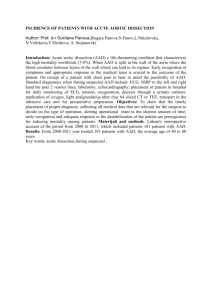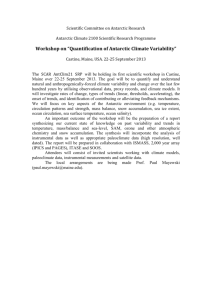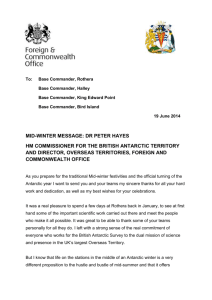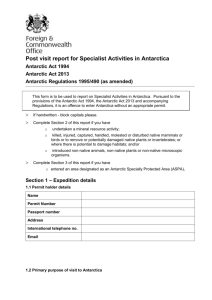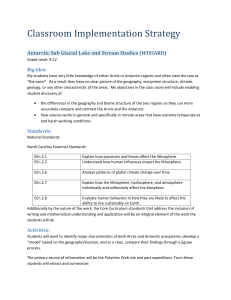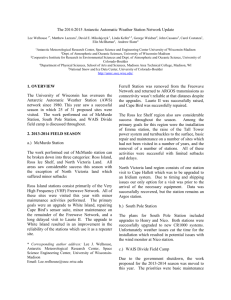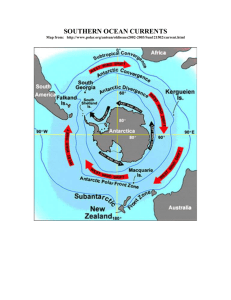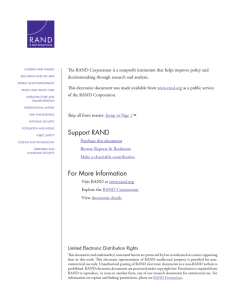The AAD Environmental Policy - Australian Antarctic Division
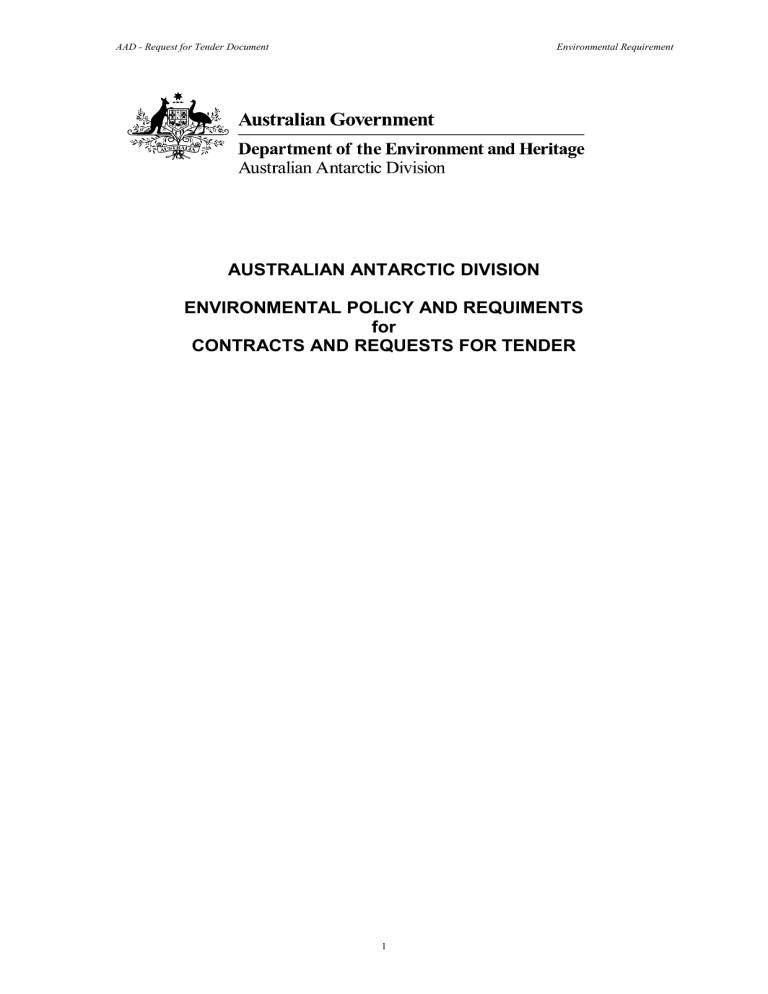
AAD - Request for Tender Document Environmental Requirement
AUSTRALIAN ANTARCTIC DIVISION
ENVIRONMENTAL POLICY AND REQUIMENTS for
CONTRACTS AND REQUESTS FOR TENDER
1
AAD - Request for Tender: 04/115 Environmental Requirement
1. ENVIRONMENTAL PERFORMANCE
1.1 Non Supply of Particular Items
Suppliers or successful tenderers must not supply any product or good that consists, contains or carries 1 :
(a)
(b)
(c) polystyrene beads or chips or any similar kind of packaging material; non-sterile soil; po lychlorinated biphenyls (PCB’s); and
(d) any pesticide, unless specifically requested by the AAD for scientific, medical, fumigation, or hygienic purposes, in which case the presence of such chemicals must be noted in the documents accompanying the
Goods.
Tenders shall include a commitment in their proposal that no items supplied to the stations will be provided as above.
2. Waste Managemen
t
The Division is committed to protecting the Antarctic environment. Packaging is a major source of waste at the stations. The Division returns to Australia all inorganic waste, with particular emphasis on sorting and recycling as much material as much as possible. Tenderers shall submit a Waste Management
Plan and their commitment to their Waste Management Plan with their tender.
The Waste Management Plan is to consider in detail the triple r's of waste management:
1. Reduce;
2. Reuse; and
3. Recycle
* specifically with respect to packaging, innovative solutions are encouraged.
Suggestions include examination of the following issues:
minimisation of excessive packaging yet ensure packaging is robust enough to allow secure shipping and prevention of spoilage;
production of a majority of waste that flows into the existing recycling streams. In this regard the Division is currently only able to recycle
PET plastics, HDPE plastics, glass (all colours), aluminium cans, bond paper and unwaxed cardboard cartons. Tetrapaks and steel cans cannot be recycled by the AAD;
non supply of any products or goods that contain polychlorinated biphenyls (PCB’s);
minimise the use of poly-vinyl chloride (PVC) in products and goods;
1 Refer to Section 19 of the Australia Treaty (Environmental Protection) Act
Page 2 16/04/2020
AAD - Request for Tender: 04/115 Environmental Requirement
minimise the use of persistent organic pollutant (POP’s) in products and goods;
meeting national air and water quality standards and controls and/or complies with international protocols aimed at reducing greenhouse emissions and emissions of ozone depleting gases;
labelling and storage of all hazardous materials; and
Monitoring, auditing and reporting mechanisms to be employed by the supplier to ensure that goods supplied meet the Waste Management
Plan.
3. Environmental Purchasing
The Commonwealth Government aims to improve the implementation of
Ecologically Sustainable Development (ESD) principles within Government departments and agencies. As a consequence the AAD is committed to:
reduce energy and water consumption (which can reduce costs);
improve the efficiency of resource use;
reduce waste (which can reduce waste disposal costs);
reduce environmental health impacts of products and services;
reduce pollution;
provide markets for new environmentally preferable products;
‘close the loop’ on recycling, improving the viability of recycling activities;
provide leadership to both the regional and national community; and
encourage industry to adopt cleaner technologies and produce products with lower environmental impacts.
The AAD Environmental Purchasing Guidelines can be found on www.aad.gov.au
and follow the links to Contracts & Purchasing / AAD
Environmental Purchasing Guideline.
Page 3 16/04/2020
AAD - Request for Tender: 04/115 Environmental Requirement
The AAD Environmental Policy
Our vision: Antarctica valued, protected and understood.
The Australian Antarctic Division (the AAD) of the Commonwealth Department of the
Environment and Heritage is responsible for achieving Austra lia’s Antarctic goals:
To maintain the Antarctic Treaty System and enhance Australia’s influence in it;
To protect the Antarctic environment;
To understand the role of Antarctica in the global climate system;
To undertake scientific work of practical, economic and national significance.
To achieve these goals the AAD, from its Headquarters in Tasmania, administers the
Australian Antarctic Territory and the Territory of Heard Island and the McDonald
Islands, and develops domestic and international Antarctic policy and environmental protection measures. It also administers the Australian National Antarctic Research
Expeditions (ANARE), which includes facilitating and conducting scientific research, and supporting and maintaining four permanent research stations and a number of seasonal field bases.
In doing this, the AAD will:
comply with all applicable environmental laws, regulations and agreements, and require compliance by participants in ANARE, by other
Australian visitors to the Antarctic, and by our contractors and suppliers;
encourage compliance with the environmental principles and agreements of the Antarctic Treaty System by other national operators, organisations and individuals in the Antarctic;
develop and implement measures and technology to prevent or minimise pollution, waste and other human impacts on the Antarctic environment;
develop and deliver environmental education, training and guidance for participants in the Australian Antarctic program, other visitors to the
Antarctic, and the public;
undertake and support research that contributes to understanding the
Antarctic environment and the effects of human activities upon it;
systematically manage our activities to achieve and promote continual improvement, by setting environmental objectives and targets and assessing our achievements;
annually review and update this Policy and communicate it to all internal and interested external parties.
AAD managers and staff, and members of ANARE are accountable to the Director for ensuring that this policy is implemented.
A.J. Press
Director
Page 4 16/04/2020
